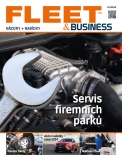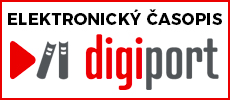In the realm of written communication, a formal letter starts with mcq as pillars of professionalism and decorum. Whether it's a business proposition, a job application, or a letter to a government official, the beginning sets the tone for the entire correspondence. Among the myriad of ways to commence a formal letter, one approach stands out: M.C.Q. – a simple yet effective method that captures attention and commands respect.
M.C.Q. stands for "Main Content Question." It's a strategic opening that succinctly encapsulates the purpose or essence of the letter. Crafting a formal letter with M.C.Q. involves precision and clarity, ensuring that the reader immediately grasps the central message.
The first step in utilizing M.C.Q. is to identify the primary objective of the letter. Whether it's requesting information, expressing gratitude, or proposing a solution, clarity on the purpose is paramount. Once the objective is clear, formulate a concise question that encapsulates this intent. This question serves as the cornerstone of the letter, guiding both the writer and the reader through the subsequent content.
For instance, consider a scenario where you're writing a formal letter to inquire about job vacancies at a company. Your M.C.Q. could be as straightforward as: "Are there any current job openings in your esteemed organization?" This question not only communicates your purpose upfront but also prompts the reader to engage with the content that follows.
Next, ensure that the language used in the M.C.Q. aligns with the formal tone of the letter. Choose words that convey professionalism and courtesy, setting the right impression from the outset. Avoid jargon or overly complex language that may obscure the message. Remember, clarity is key in formal communication.
Following the M.C.Q., provide a brief introduction that contextualizes the question and establishes your credibility or relationship with the recipient. This introduction should be concise yet informative, offering a glimpse into the background of the letter and its relevance to the recipient.
Continuing with our example, you might introduce yourself by stating your name, professional background, and any mutual connections or references. This establishes a rapport with the reader and reinforces the seriousness of your inquiry.
After the introduction, delve into the body of the letter, providing relevant details, supporting information, or arguments. Maintain a logical flow, organizing your points in a manner that reinforces the central question posed in the M.C.Q. Each paragraph should build upon the previous one, leading the reader towards a clear understanding of your message.
In our job inquiry letter, you could discuss your qualifications, relevant experience, and reasons for seeking employment at the company. Tailor the content to address any specific requirements mentioned in the job posting or to highlight areas where your skills align with the company's needs.
Throughout the body of the letter, maintain a professional tone and adhere to standard conventions of grammar and punctuation. Proofread carefully to eliminate any errors or inconsistencies that may detract from your message. Remember, attention to detail is crucial in formal correspondence.
As you approach the conclusion of the letter, reaffirm the central question posed in the M.C.Q. and express gratitude for the recipient's time and consideration. A courteous closing, such as "Thank you for your attention to this matter," or "I look forward to your prompt response," adds a final touch of professionalism.
Finally, sign off with an appropriate salutation and your name, ensuring that all contact information is included for follow-up purposes. Double-check the accuracy of your contact details to facilitate seamless communication.
In essence, starting a formal letter with M.C.Q. is a strategic approach that streamlines communication and enhances clarity. By distilling the essence of your message into a concise question, you set the stage for a focused and productive exchange. Whether you're seeking information, making a request, or conveying important news, M.C.Q. offers a powerful tool for effective communication in the realm of formal correspondence. Mastering this technique can elevate your writing skills and leave a lasting impression on your recipients.



